Yeah we are watching a puppet show. We have very little representation among legislators.
I found it awesome the discussion on Indiana HB 1079 which would have created some regulations for low-thc hemp extract including delta 8 thc and others.
The spokesperson from the state police and the prosecuter's council said they aren't able to prosecute these cases right now. Its not clear if its legal or not, they said.
Its the POWER OF THE PEOPLE that is holding them back from arresting people for low-THC hemp products. The people would make it a rally point in support of cannabis legalization 3/4 states surrounding Indiana have adult-use cannabis and the other state, KY, has medical cannabis.
Law enforcement is likely feeling political pressure to hold back on these frivilous prosecutions for low-thc hemp which people use as medicine in a state without legal cannabis. Indiana legislators are waiting on the federal government to make their ruling.
You are using an out of date browser. It may not display this or other websites correctly.
You should upgrade or use an alternative browser.
You should upgrade or use an alternative browser.
:::::::Indiana Cannabis Reform Legislation::::::
- Thread starter pipeline
- Start date
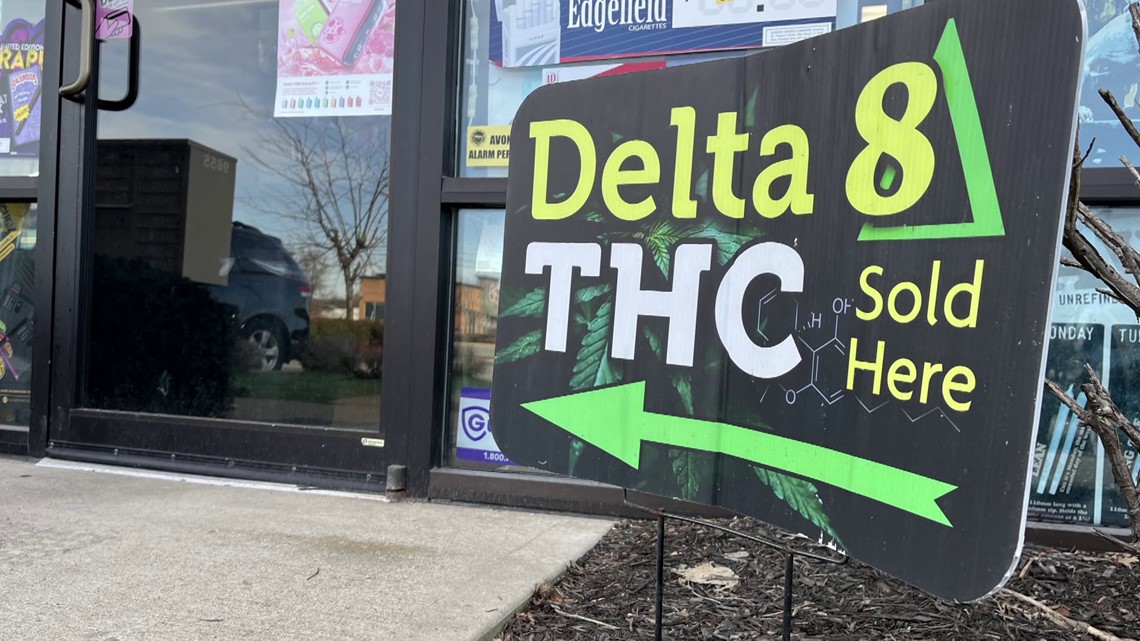
13News investigation finds some Delta-8 products exceed state’s THC limit, underscoring need for regulation
The products can get users high and are easily accessible – even for minors. But testing finds many of the products contain THC that exceeds Indiana’s legal limit.
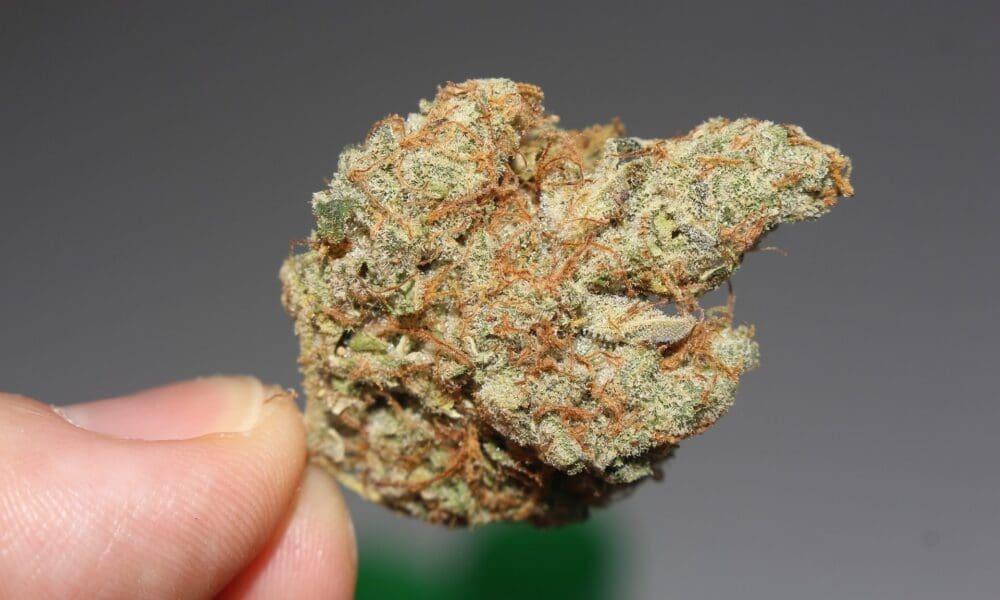
Multiple States Across The Country See Record-Breaking Marijuana Sales To Close Out 2023
More than a half dozen U.S. states where marijuana is legal notched record-breaking monthly sales in December, with many relatively new adult-use cannabis markets continuing to expand and American shoppers in general stepping up holiday spending. Most of the monthly sales records were seen in...www.marijuanamoment.net
Every time you decide to buy something, its like voting for it. The amount of revenue shows that the people are supportive of adult-use cannabis. Having all these states continuing to function allowing adult-use will display the power of the people.
There would be quite an uprising if the government ever decides to take away the right to use this medicine from citizens of legal states.
Its called God showing up and blessing it, we should give thanks! All the kind, dedicated souls who worked to get this done, as well as all the people who have been outspoken to educate others deserve recognition. People making purchases have cast their vote! Yes for cannabis!

Cannabinoids in breast milk | Kalapa Clinic
Not everybody in the world known that there are cannabinoids in breast milk. Studies state that we are born with cannabinoid receptors.
The endocannabinoid-CB1 receptor system in pre- and postnatal life
Author links open overlay panel
Abstract
Recent research suggests that the endogenous cannabinoids (“endocannabinoids”) and their cannabinoid receptors have a major influence during pre- and postnatal development. First, high levels of the endocannaboid anandamide and cannabinoid receptors are present in the preimplantation embryo and in the uterus, while a temporary reduction of anandamide levels is essential for embryonal implantation. In women accordingly, an inverse association has been reported between fatty acid amide hydrolase (the anandamide degrading enzyme) in human lymphocytes and miscarriage. Second, CB1 receptors display a transient presence in white matter areas of the pre- and postnatal nervous system, suggesting a role for CB1 receptors in brain development. Third, endocannabinoids have been detected in maternal milk and activation of CB1 receptors appears to be critical for milk sucking by newborn mice, apparently activating oral–motor musculature. Fourth, anandamide has neuroprotectant properties in the developing postnatal brain. Finally, prenatal exposure to the active constituent of marihuana (Δ9-tetrahydrocannabinol) or to anandamide affects prefrontal cortical functions, memory and motor and addictive behaviors, suggesting a role for the endocannabinoid CB1 receptor system in the brain structures which control these functions. Further observations suggest that children may be less prone to psychoactive side effects of Δ9-tetrahydrocannabinol or endocannabinoids than adults. The medical implications of these novel developments are far reaching and suggest a promising future for cannabinoids in pediatric medicine for conditions including “non-organic failure-to-thrive” and cystic fibrosis.
Introduction
Cannabinoid CB1 receptors in the mature organism are widely and densely distributed in neural as well as non-neural tissue including brain, reproductive, immune, digestive systems as well as in peripheral neurons (Fride, 2002c, Maccarrone et al., 2002, Parolaro et al., 2002, Pertwee, 1997, Pinto et al., 2002). CB2 receptors are mainly found in non-neural tissue (Lutz, 2002, Pertwee, 1997) although their presence on peripheral nerves is possible (Ibrahim et al., 2003). In the developing organism, CB1 receptors have been investigated more thoroughly than that of CB2 receptors.
Endogenous ligands for the cannabinoid receptors, denoted as “endocannabinoids”, include thus far anandamide (arachidonyl ethanol amide (Devane et al., 1992)), 2-arachidonoyl glycerol (2-AG (Mechoulam et al., 1995)), noladin (arachidonyl glyceryl ether (Hanus et al., 2001)), the antagonist/partial agonist virodhamine (Porter et al., 2002) and NADA (N-arachidonoyl-dopamine (Walker et al., 2002)). This newly discovered physiological system will be denoted the ‘endocannabinoid CB receptor’ system.
Section snippets
Cannabinoid (CB1 and CB2) receptors
Cannabinoid CB1 and CB2 receptor mRNA has been detected as early as the pre-implantation period in the embryonal mouse (Paria and Dey, 2000) and has also been described around day 11 of gestation (Buckley et al., 1998). Postnatally, a gradual increase in CB1 receptor mRNA (McLaughlin and Abood, 1993) and in the density of CB1 receptors has been measured (Belue et al., 1995, Rodriguez de Fonseca et al., 1993) in whole brain.
Similar developmental patterns of CB1 receptors were found during human
The role of the endocannabinoid CB receptor system in gestation
CB1 and CB2 receptors are already present in the pre-implantation mouse embryo (Paria and Dey, 2000), the CB1 receptor at higher concentrations than those in the brain (Yang et al., 1996). These observations led to the discovery that cannabinoids and endocannabinoids arrest the development of 2-cell embryos into blastocytes. Subsequent studies with CB1 and CB2 receptor antagonists indicated that the cannabinoid-induced embryonal growth arrest is mediated by CB1 and not by CB2 receptors (Paria
Role of cannabinoid receptors in neuronal development
Studies on the expression and functionality of the human CB1 receptor in the developing brain have demonstrated that fetal brain CB1 receptors are functionally active not only in regions which contain cannabinoid CB1 receptors throughout life, such the cerebral cortex and hippocampus, but also in white matter such as the capsula interna and pyramidal tract and in proliferative zones such as the subventricular zone (Mato et al., 2003). These observations are consistent with investigations on the
Neuroprotection in the developing organism
Similarly to the neuroprotective effects of the endocannabinoid CB1 receptor system in adults (Fride and Shohami, 2002), activation of CB1 receptors in postnatal rats (7 days old) with WIN55,212 prevented neuronal loss (in a model of acute asphyxia), both immediate and delayed cell death. However, only delayed neurotoxicity was inhibited by the CB1 receptor antagonist N-(piperidiny-1-yl)-5-(4-chlorophenyl)-1-(2,4-dichlorophenyl)-4-methyl-1H-pyrazole-3-carboxamide (SR141716A) (Martinez-Orgado et
Prenatal manipulation of the endocannabinoid CB receptor system and the developing brain
Since the 1960s, a multitude of studies have attempted to assess potential adverse effects of marihuana use during pregnancy, on the offspring. Although description of the teratogenicity of the cannabis plant and its major psychoactive constituent Δ9-tetrahydrocannabinol is beyond the scope of this article, the outcome of such studies has implications for the importance of the endocannabinoid CB receptor system during development. Thus functions which are not affected by prenatal Δ9
Milk suckling and survival during the neonatal period
The involvement of marihuana in feeding and appetite was demonstrated decades ago (Abel, 1971, Fride, 2002b); endocannabinoids appear to fulfill a similar role (Fride, 2002c, Williams and Kirkham, 1999). Endocannabinoids have been detected in bovine as well as human milk, 2-arachidonoyl glycerol (2-AG) in at least 100- to 1000-fold higher concentrations than anandamide (Di Marzo et al., 1998, Fride et al., 2001).
Is it possible that the high levels of CB1 receptor mRNA and 2-AG which have been
Cannabinoids in pediatric medicine
The gradual postnatal increase of anandamide and its CB1 receptors (see Pre- and postnatal development of the endocannabinoid CB receptor system) is accompanied by a gradual maturing response to the psychoactive potential of Δ9-tetrahydrocannabinol and anandamide in postnatal mice between birth and weaning (Fride and Mechoulam, 1996b).
This observation has important implications for cannabinoid therapy in children, since psychoactive side effects may be expected to be minor when treated with
Conclusions
The endocannabinoids and their receptors (CB1, CB2 and the putative CB3 receptor) (Breivogel et al., 2001, Fride et al., 2003b) fulfill a multitude of physiological functions, including immunological, neurological, psychiatric and cardiovascular. Our knowledge of the various roles of the endocannabinoid CB receptor system in developmental processes is still sketchy. However, from the knowledge accumulated until now, it appears that while the endocannabinoid CB receptor system contributes to
References (77)
- A. Abrahamov et al.
An efficient new cannabinoid antiemetic in pediatric oncology
Life Sci.
(1995)- R.C. Belue et al.
The ontogeny of cannabinoid receptors in the brain of postnatal and aging rats
Neurotoxicol. Teratol.
(1995)- A. Biegon et al.
Autoradiographic study of pre- and postnatal distribution of cannabinoid receptors in human brain
NeuroImage
(2001)- A. Bonnin et al.
The prenatal exposure to delta 9-tetrahydrocannabinol affects the gene expression and the activity of tyrosine hydroxylase during early brain development
Life Sci.
(1995)- J. Fernandez-Ruiz et al.
The endogenous cannabinoid system and brain development
Trends Neurosci.
(2000)- E. Fride
Endocannabinoids in the central nervous system—an overview
Prostaglandins, Leukot. Essent. Fat. Acids
(2002)- E. Fride et al.
Developmental aspects of anandamide: ontogeny of response and prenatal exposure
Psychoneuroendocrinology
(1996)- E. Fride et al.
Ontogenetic development of the response to anandamide and delta 9-tetrahydrocannabinol in mice
Brain Res. Dev. Brain Res.
(1996)- E. Fride et al.
Critical role of the endogenous cannabinoid system in mouse pup suckling and growth
Eur. J. Pharmacol.
(2001)- E. Fride et al.
Milk intake and survival in newborn cannabinoid CB1 receptor knockout mice: evidence for a “CB3” receptor
Eur. J. Pharmacol.
(2003)
Its interesting the states that are holding off on reforming cannabis laws, saying we need further research on the medical benefits and potential harms of cannabis. Isn't the experiment currently ongoing in all the 38 states that allow either medical or adult-use cannabis? There should be plenty of information, and all you need to do is look at the size of the market to see that Americans approve of cannabis as a medicine.
Adults should be able to make the choice to use cannabis for medicine or stress relief or whatever without a doctor's recommendation or license. If its in breast milk, it can't be that harmful.
This has gone on so long, and there no longer is any reason for cannabis to remain on any Drug Schedule on the Controlled Substances act.
So the government has legalized taking bribe money. These business lobby groups heavily influence lawmakers. A representative from the Indiana Chamber of Commerce testified at a committee hearing for a cannabis bill last year, and they said they needed more research to be done before they would be able to agree to legalized medical cannabis.
The insurance companies are what are telling these businesses to vote this way in the chamber of commerce. So the real power structure is becoming visible. The ones who have the most representation and power in the lawmaking process are big banks who own insurance companies. They dictate to the busness owners how they are going to hire manage employees. The businesses then have to vote that way in the Board of the Chamber of commerce. Then the Chamber of Commerce works to lobby lawmakers to get policies which align which the insurance companies.
The lamakers respond to the advice of the big business lobby groups and ignore the will of the people.
Liberty, natural medicine and the welfare of the people are lost, and they are straight going for the money.

 www.indianachamber.com
www.indianachamber.com
The insurance companies are what are telling these businesses to vote this way in the chamber of commerce. So the real power structure is becoming visible. The ones who have the most representation and power in the lawmaking process are big banks who own insurance companies. They dictate to the busness owners how they are going to hire manage employees. The businesses then have to vote that way in the Board of the Chamber of commerce. Then the Chamber of Commerce works to lobby lawmakers to get policies which align which the insurance companies.
The lamakers respond to the advice of the big business lobby groups and ignore the will of the people.
Liberty, natural medicine and the welfare of the people are lost, and they are straight going for the money.


Indiana Chamber Foundation Funds Vital Policy Research
The Indiana Chamber Foundation funds practical policy research, initiates actions and seeks solutions that positively impact Indiana’s economic future.
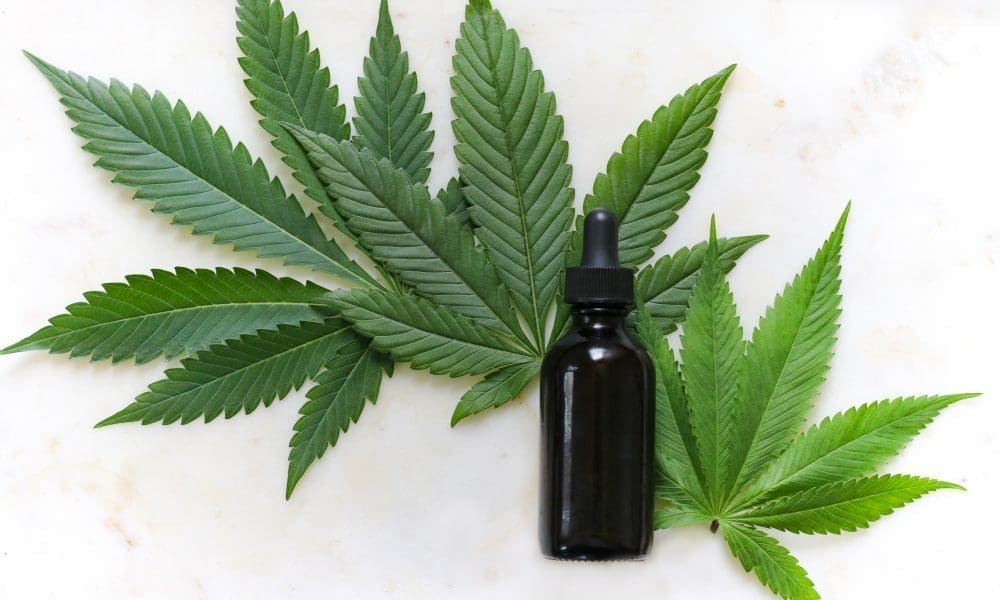
FDA Official Says Agency Is ‘Actively’ Exploring CBD Regulations As It Continues To Monitor Kratom
The Food and Drug Administration (FDA) is “actively” exploring a potential regulatory framework for CBD, with plans to prioritize the issue in the next year, a top official says. Meanwhile, the agency is also investigating issues related to kratom. FDA Deputy Commissioner for Policy...www.marijuanamoment.net
FDA Official Says Agency Is ‘Actively’ Exploring CBD Regulations As It Continues To Monitor Kratom
Published
4 seconds ago
on
February 28, 2024
By
Kyle Jaeger
The Food and Drug Administration (FDA) is “actively” exploring a potential regulatory framework for CBD, with plans to prioritize the issue in the next year, a top official says. Meanwhile, the agency is also investigating issues related to kratom.
FDA Deputy Commissioner for Policy, Legislation, and International Affairs Kimberlee Trzeciak discussed the agency’s cannabis and kratom interests during a webinar hosted by the Alliance for a Strong FDA this month.
Asked about issues that are “top of mind” for the agency in 2024 and where officials hope to engage with Congress, Trzeciak said that later this year or next year FDA wants to address setting up “an appropriate regulatory framework for CBD.”
Later in the conversation, the FDA official was asked specifically about how the agency is “prioritizing” its work on cannabis and kratom regulations, and she said officials are taking a number of factors into consideration as they work to address the substances.
“In almost every neighborhood you go to, you can see stores on the corners that are marketing CBD and kratom and others,” she said. “And one of the things that we have been thinking through here at FDA, using CBD as an example, is what does the regulatory framework for those products look like?”
“Based on what we know about CBD in particular, we do not think that those products would be able to meet the safety standards that we have in place for foods and dietary supplements today,” she said, referencing the agency’s position after it declined to enact regulations for the non-intoxicating cannabinoid that was legalized under the 2018 Farm Bill.
“What can we do in terms of regulatory tools to ensure that this product is going to be marketed that consumers are clearly aware of what the product is, what is in it and making sure that we have basic information about the marketplace?” Trzeciak said. “I like to think of it as the common regulatory tool that we have across the other products that we regulate.”
She added that FDA wants to “work with Congress on this effort,” including possible rulemaking around CBD product labeling and packaging.
“For example, how can we ensure that the agency knows if there are adverse events that are being reported, so we can identify those trends, making sure that the product is being manufactured or produced in a way that’s safe and quality?” she said.
Kratom reform advocates say the deputy commissioner’s comments represent a “shift” in the agency’s policy perspective on the issue. Historically, FDA hasn’t engaged in the kratom debate as actively as other agencies such as the National Institute on Drug Abuse (NIDA).
Meanwhile, FDA has faced criticism from hemp stakeholders and lawmakers over its prior decision not to regulate CBD, despite its prevalence in the marketplace. But it’s insisted that it will need additional congressional authorization in order to develop such regulations.
In a recent letter addressed to House Energy and Commerce Committee leaders, 28 state and national nonprofits focused on hemp and dietary supplements said that “the time for a hearing has never been riper” to examine regulatory pathways that FDA could enact to allow for the lawful marketing of hemp products for humans and animals.
The committee responded to FDA’s inaction last summer by putting out a Request for Information (RIF) from experts on the best path forward for regulating hemp, with hundreds of respondents sharing their perspective and recommendations.
With respect to congressional action, Sens. Ron Wyden (D-OR), Rand Paul (R-KY) and Jeff Merkley (D-OR), along with Rep. Earl Blumenauer (D-OR), filed legislation last July that would remove regulatory barriers that FDA claims prevents it from allowing the hemp marketing.
The House Oversight and Accountability Subcommittee on Health Care and Financial Services also held a hearing on FDA inaction over CBD last year, a first-of-its-kind meeting where bipartisan members strongly criticized the agency’s position.
Meanwhile, the National Association of State Departments of Agriculture (NASDA) is separately calling on Congress to increase the THC limit for legal hemp as one of their 2024 policy priorities.
The 0.3 percent THC limit for hemp that was imposed under the 2018 Farm Bill that federally legalized the crop has long been subject to criticism from stakeholders and lawmakers across the aisle. And one Justice Department researcher recently called into question the rationale for the restriction, suggesting it was arbitrarily decided based on a 1950s-era article that was adopted into federal statute.
The Congressional Research Service (CRS) recently outlined how differing policy priorities among industry stakeholders could complicate the task of updating the next farm bill’s hemp provisions, but there are several areas of agreement within the top industry groups.
One of those shared interests is amending the law to raise the THC limit to one percent for compliant hemp—a proposal that was also addressed in a standalone bill from Rep. Chellie Pingree (D-ME) in 2022.
It’s unclear if congressional lawmakers will ultimately tackle the Farm Bill this year. The 2018 version was set to expire at the end of last year, but it was extended under a bill President Joe Biden signed.
Meanwhile, FDA has also been engaged in other drug policy reform debates amid an ongoing federal review into marijuana scheduling, which prompted the agency to recommend. moving cannabis from Schedule I to Schedule III of the Controlled Substances Act (CSA).
FDA recently highlighted its scientific review into marijuana—a process that involved a comprehensive analysis of research, as well looking at hundreds of posts on social media platforms to see how consumers described cannabis’s therapeutic impact.
Earlier this month, FDA officials also joined scientists at a public meeting on next steps for conducting research to develop psychedelic medicines.
The meeting came months after FDA issued historic draft guidance on psychedelics studies, providing scientists with a framework to carry out research that could lead to the development of novel medicines.
To that end, FDA also recently accepted an application to review MDMA-assisted therapy as treatment option for post-traumatic stress disorder (PTSD), agreeing to carry out the analysis on an expedited basis.
lower is actually illegal to possess here. They are unable to run enough tests, and the testing capability is limited to the accuracy down to 1% using the cheaper testing methods they use.
The manufacturers actually have a very difficult time clearing the 0.3% threshold becuase its set so artificially low. They actually are violating the law at times in production, and some of the products you can purchase were tested by WISH 13 news in an investigative report and were found to have 1-2% delta 9 THC.
I could purchase it online and just keep it at home. Yeah its a crazy situation Hemp is legal federally yet the state doesn't allow it.
Then the medical cannabis which contains THC is legal in some states yet not legal federally.
The manufacturers actually have a very difficult time clearing the 0.3% threshold becuase its set so artificially low. They actually are violating the law at times in production, and some of the products you can purchase were tested by WISH 13 news in an investigative report and were found to have 1-2% delta 9 THC.
I could purchase it online and just keep it at home. Yeah its a crazy situation Hemp is legal federally yet the state doesn't allow it.
Then the medical cannabis which contains THC is legal in some states yet not legal federally.
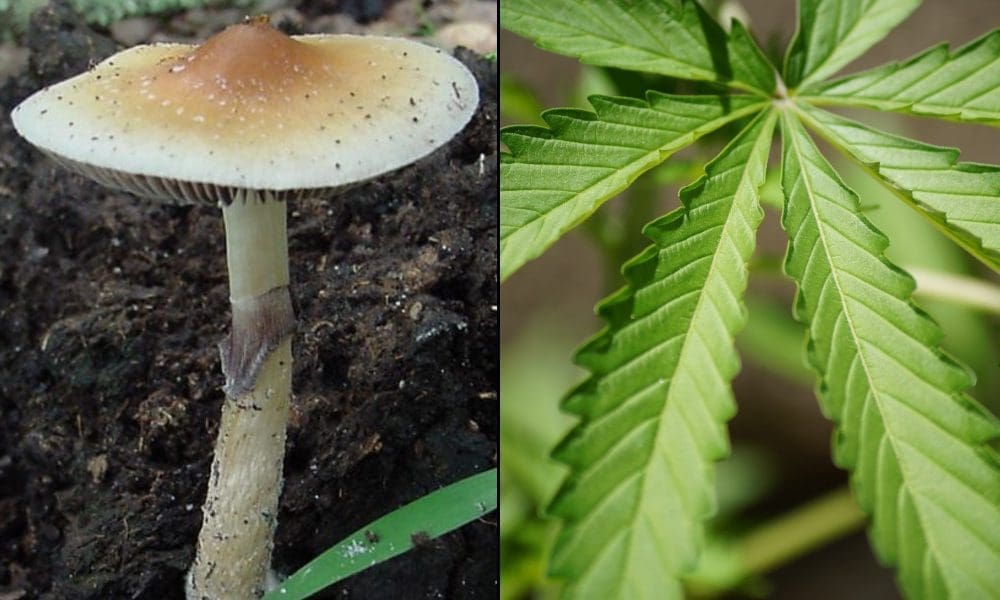
UN Body Reaffirms That Marijuana Legalization Violates International Treaties, While Addressing Germany Cannabis Reform And U.S. Psychedelics Movement
The United Nations’s (UN) drug control body is reiterating that it considers legalizing marijuana for non-medical or non-scientific purposes a violation of international treaties, though it also said it appreciates that Germany’s government scaled back its cannabis plan ahead of a recent vote...www.marijuanamoment.net
UN Body Reaffirms That Marijuana Legalization Violates International Treaties, While Addressing Germany Cannabis Reform And U.S. Psychedelics Movement

Published
5 seconds ago
on
March 6, 2024
By
Kyle Jaeger
The United Nations’s (UN) drug control body is reiterating that it considers legalizing marijuana for non-medical or scientific purposes a violation of international treaties, though it also said it appreciates that Germany’s government scaled back its cannabis plan ahead of a recent vote. The global narcotics agency is also taking note of the psychedelics policy reform movement in U.S. states.
This is mostly par for the course for the International Narcotics Control Board (INCB), which has routinely criticized countries for allowing the enactment of cannabis legalization due to their obligations under various Single Convention treaties going back to 1961. But as Germany entered the fold, and the U.S. has continued to move toward marijuana and psychedelics reform, the body is again making its disappointment known.
INCB’s 2023 annual report, which was published on Tuesday, “underscores” that member nations are required to “take such legislative and administrative measures as may be necessary” to criminalize “the production, manufacture, export, import, distribution of, trade in, use and possession of drugs” such as marijuana under decades-old treaty agreements.
“The Board continues to reiterate its concern regarding the legalization of the use of cannabis for non-medical and non-scientific purposes in several jurisdictions, with other jurisdictions considering similar action,” it said.
To that point, INCB also included a recommendation in the latest report to recall an analysis from its 2022 report that, at one point, suggested that the U.S. is out of compliance with drug treaty obligations because the federal government is passively allowing states within the country to legalize marijuana.
“The apparent tension between these provisions and the trend towards legalization must be addressed by the signatories to the three drug control conventions,” it said.
Meanwhile, the new report also discusses the board’s ongoing monitoring of efforts to legalize marijuana in Germany. The country’s parliament officially approved a bill to legalize cannabis nationwide last month.
“The Board has had ongoing discussions with the authorities in Germany and has taken note of the evolution of the originally planned control measures following concerns expressed by the European Commission, in particular with respect to the provisions on the sale of cannabis in speciality shops to adults for non-medical purposes,” it said.
That’s in reference to changes to the Germany government’s legalization plan that makes it so possession and home cultivation would become legal, while authorizing social clubs to distribute marijuana to members, but not establishing a full-scale commercial market right away.
Overall, while German supporters have said legalization would take effect in April if the legislation is enacted, there are questions about that timeline. The country’s Bundesrat may move to refer the legislation to a mediation committee to address criminal justice-related implications of the law, which could mean several months of additional discussion.
In the U.S., INCB recognized that while “cannabis remains subject to the highest level of control under the Controlled Substances Act, use of the drug has been legalized in several states for non-medical purposes.”
“The Board has repeatedly expressed its concern that these developments may be inconsistent with the country’s legal obligations as a party to the three international drug conventions,” it said.
“The Board continues to maintain a constructive dialogue with the Government of the United States on these matters,” it added.
The report further notes that President Joe Biden’s mass pardons for federal marijuana possession offenses are actively “being implemented” by the Justice Department.
“While the presidential pardon does not expunge the existing conviction, it removes civil or legal restrictions, such as on the rights to vote, hold office or sit on a jury, and lifts barriers to housing, employment and educational opportunities,” it says.
Notably, INCB did not mention the parallel presidential directive that’s underway to review the scheduling status of cannabis under federal law.
The reason that lack of mention stands out is because supporters and opponents of rescheduling under U.S. law, as recommended by the U.S. Department of Health and Human Services (HHS), have made competing arguments about the influence of international treaty obligations in the final decision that the Drug Enforcement Administration (DEA) is expected to hand down.
For example, a Democratic congresswoman recently implored DEA to “reject any argument” that rescheduling marijuana under federal law would constitute a violation of international treaty obligations. She also asked the agency to reveal a list of any “outside partners” it has met with to discuss the global implications of a potential cannabis reclassification.
Legal experts recently released an opinion that disputes that assessment. In fact, they argued that a move to Schedule III would better uphold the country’s broader obligations under international law to regulate cannabis in a way that protects public health and safety.
Among those who’ve raised concerns about treaty obligations blocking a move to Schedule III is Rep. Andy Harris (R-MD), who raised the issue in a letter sent to DEA Administrator Anne Milgram late last month, claiming that any reclassification that puts marijuana outside of Schedule I or Schedule II “would constitute a violation of the Single Convention,” referring to the 1961 United Nations (UN) Single Convention on Narcotic Drugs.
But as a coalition of 12 senators pointed out in a separate letter to Milgram a week earlier, the UN has since revised global cannabis scheduling policies and allowed other member states, such as Canada, to legalize and regulate marijuana without penalty. Those lawmakers urged DEA to legalize marijuana completely.
Additionally, INCB in its new report said that it is monitoring psychedelics policy developments in the U.S. and in other countries, including the legalization of psilocybin services in Oregon and a broader class of psychedelics in Colorado.
“A growing interest in the therapeutical potential of psychedelic drugs and the potential risks in their unregulated use has also been noted,” the report said. “While clinical studies on the use of psychedelics are conducted in some countries, most of the health, wellness and tourism businesses involving the use of psychedelics have been operating without much regulatory oversight. Unsupervised and experimental use of those substances, even in microdoses as self-medication, may put some vulnerable populations at risk.”

Couldn't adult-use legalization be considered medicinal since cannabis is a medicine?
I really don't see where the contradiction exists except in the corrupt minds of the controlling corporate elite in high authority positions.
See, everyone has been trained to think of cannabis as a drug of abuse, therefore, everyone will suffer now because, supposedly, the people are incapable of using cannabis as a medicine without a doctor's guidance. This is not true, due to the favorable safety profile of cannabis. Its a valuable therapeutic that can be used in a wide range of dosages with little adverse or side effects.
Why can't we just say, alright adults are able to purchase or produce cannabis for use as medicine. Then we can go from there allowing people to live dignified lives where they are responsible for using cannabis in a way that is helpful for them.
Liberty or death. Where is the love?
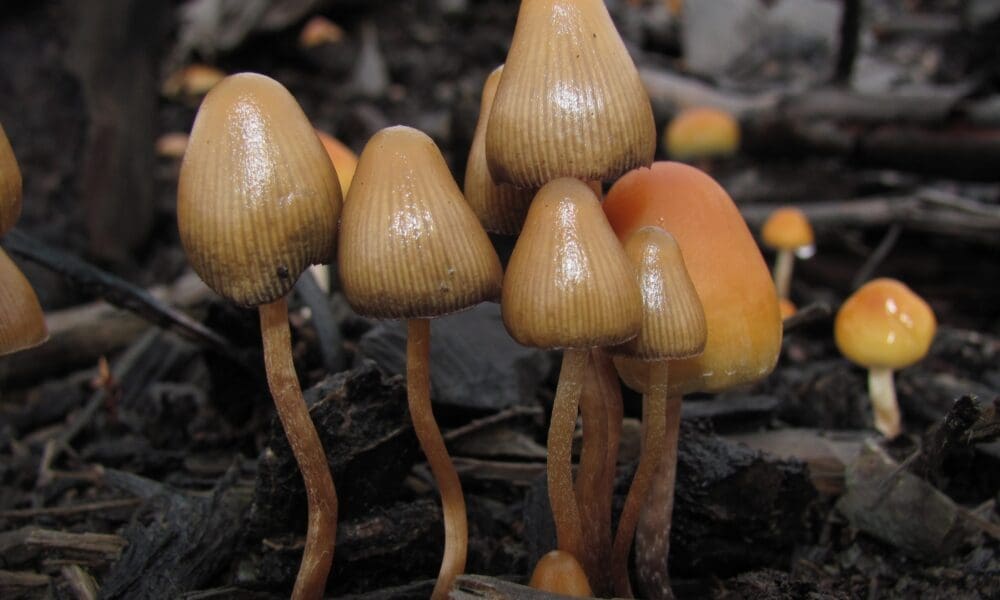
Indiana Lawmakers Send Psilocybin Research Funding Bill To Governor
The Indiana legislature has sent a bill to the governor’s desk that includes provisions to fund clinical research trials into psilocybin. The House and Senate both passed the underlying legislation on health care issues, which was amended to add the psychedelics language, last week. The reform...
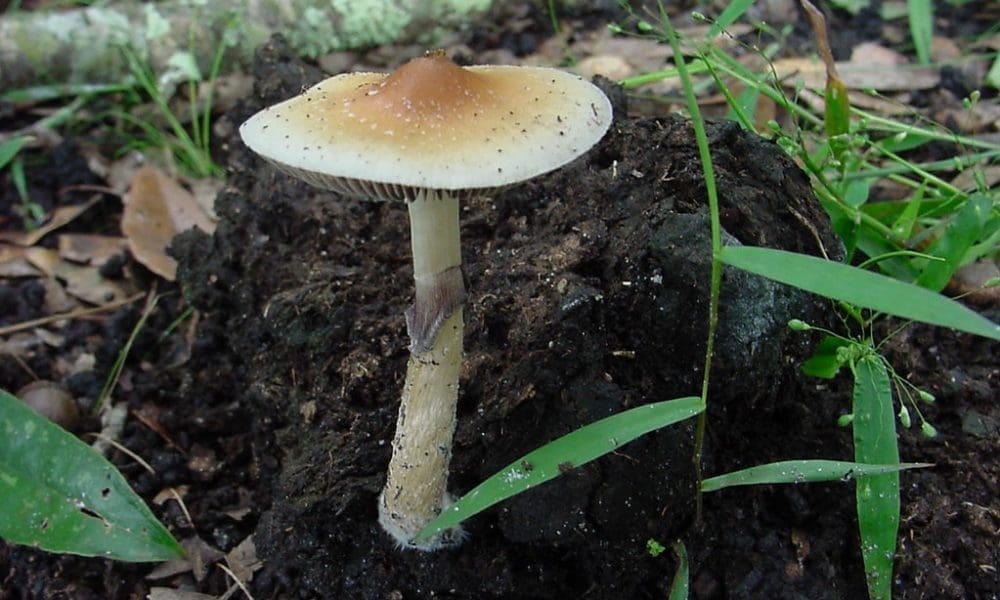
Indiana Governor Signs Psilocybin Research Funding Bill With Focus On Veterans And First Responders
The governor of Indiana has signed a bill that includes provisions to fund clinical research trials on the therapeutic benefits of psilocybin. Gov. Eric Holcomb (R) approved the legislation, which broadly focuses on health care issues, but which was amended to add the psychedelics language, last...
Event Details
INDIANA NORML 50TH ANNIVERSARY PRESENTED BY VIRIDIS LAW @ HI-FI ANNEX INDIANAPOLIS
WITH DJ INDYCA, LESLIE RED, OK BOOMER, ASSORTED FLAVORS, BULLETPROOF & THE FOOL
DOORS: 4:20 PM, EVENT: 5:00 PM
GENERAL ADMISSION, LIMITED SEATING.
AGE RESTRICTIONS: 21+
ALL TICKETS ARE NON TRANSFERABLE AND NON REFUNDABLE. SUPPORT ACTS ARE SUBJECT TO CHANGE.
----------------------------
INDIANA NORML 50TH ANNIVERSARY
Join us in celebrating a significant milestone in the fight for cannabis advocacy as Indiana NORML marks its 50th anniversary!
Our mission has been steadfast—to move public opinion in favor of the responsible use of cannabis by adults and to be the voice for consumers seeking safe, convenient, and affordable access to high-quality cannabis.
We are called to break the chains of outdated cannabis laws. Indiana NORML is on a mission to turn the tide, armed with a staggering truth: only 9% of Hoosiers are on board with the current cannabis regulations. This isn't just a statistic; it's a call to action.
Imagine a future where the voice of the people shapes policies, where the impact on minority communities is a priority. Indiana NORML is unleashing a powerhouse plan—educational blitzes, powerful engagements with industry professionals, and a strategic legislative push. This isn't just about cannabis; it's about justice, health, and a state united for change.
Stand with us as we turn the page on archaic regulations and write a new chapter for Indiana—one that echoes with the collective power of a community demanding progress. Let's make history together.
Live Entertainment: DJ Indyca LIVE
Experience the vibrant beats of DJ Indyca LIVE throughout the event, creating an atmosphere of celebration and unity.
Stay Connected:
For more information and updates, visit our official site: INDIANANORML.ORG
Indiana Democrats cautiously optimistic about medical marijuana legalization next year
Story by Hannah Adamson• 1d •
MSN
www.msn.com
INDIANAPOLIS — As the federal rescheduling of marijuana plays out, and with a new governor soon to be at the helm, some Indiana Democrats have expressed cautious optimism about medical marijuana legalization efforts next session.
This comes as the DEA announced it would work to reclassify marijuana as a Schedule III substance last month. For Navy veteran Keith Johnson, who runs an apothecary in the heart of Indianapolis, the decision could prove life-changing.
Want Indiana to legalize marijuana? No Republican governor candidate does
”I was damaged pretty severely by pharmaceutical medicines,” Johnson said.
Johnson, who is also the communications director for Indiana NORML (National Organization for the Reform of Marijuana Laws), said that treatments for a TBI he sustained while in the military ended up hurting him more than helping him.
”I got organ damage, liver damage, kidney, destroyed my thyroid, I went toxic,” Johnson said.
According to Johnson, cannabis changed everything after 15 years of pharmaceutical medicines. However, he and many other fellow veterans who suffer from PTSD can only legally turn to artificially converted products such as Delta 8.
”I see what the medicines are doing to my brothers and sisters out there and it needs change,” Johnson said.
State Sen. Rodney Pol (D-Michigan City) said the federal reclassification could make it much harder for Statehouse Republican leadership to kill the conversation surrounding medical marijuana.
”For years now, we continuously hear,’ Well, we’re not doing anything until the federal government does something.’ Well now the federal government is doing something,” Sen. Pol said.
But other Democrats, like State Rep. Vanessa Summers (D-Indianapolis), said they’re still on the fence as to whether or not Statehouse Republican leaders will take the renewed federal efforts into consideration.
”It’s still up to the powers that be that get the legislation and decide to send it to a committee,” Rep. Summer said.
DEA proposing to reclassify marijuana as a less dangerous drug
Dr. Kevin Sabet, president of the bipartisan group Smart Approaches to Marijuana, said that even if marijuana is ultimately reclassified, that doesn’t mean it becomes legal.
”You’re not going to be able to go to a pharmacy and fill a prescription for marijuana because there is no FDA-approved product called marijuana,” Dr. Sabet said.
”There’s a lot of work to be done, and if today it were moved to Schedule III, we’d still have a year to two years in Indiana before things get sorted out,” Johnson said.
FOX59/CBS4 reached out to Republican leadership within the General Assembly for comment but had not heard back by the time this article was published.
Last edited:
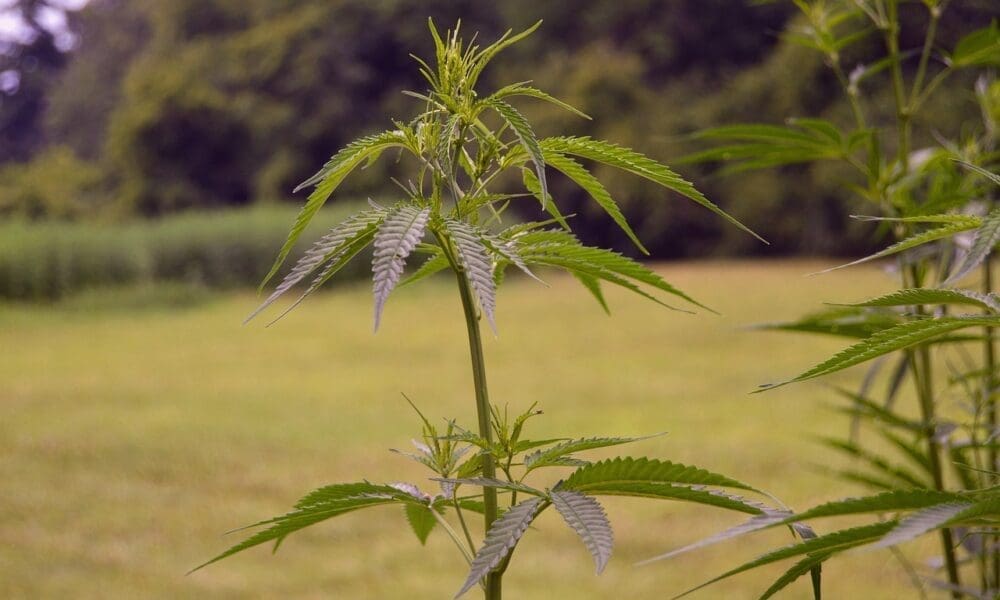
Indiana Lawmakers Weigh Restrictions On Hemp-Derived Delta-8 THC Products
“It shouldn’t be the policy of the government to allow people to alter their minds.” By Leslie Bonilla Muñiz, Indiana Capital Chronicle In the nearly six years since a federal law appeared to open the doors to delta-8, the marijuana-like drug has grown into a billion-dollar Hoosier industry. But...
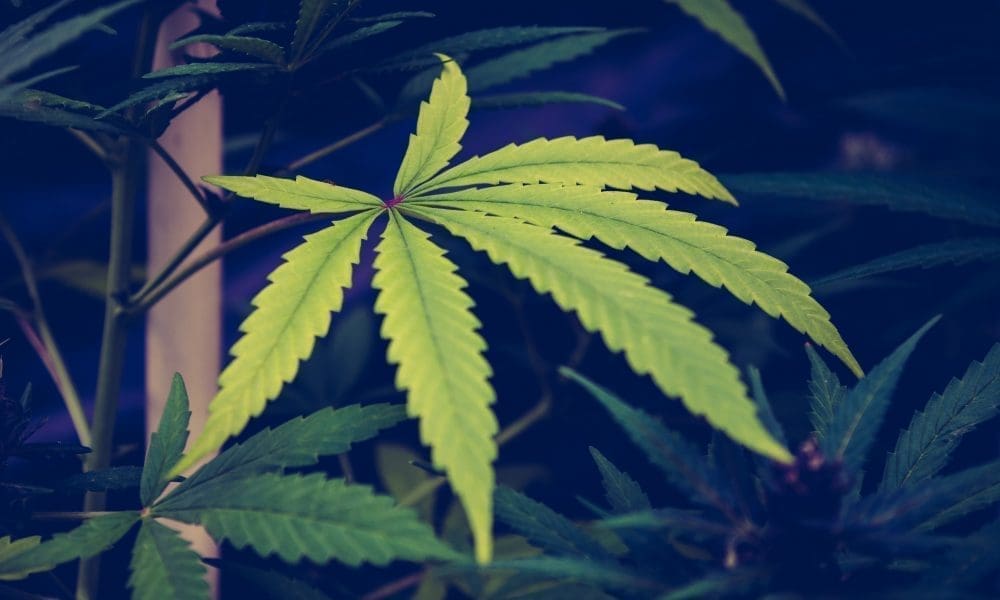
Ohio Lawmakers Approve Rules Allowing Adult-Use Marijuana Sales To Start Next Month
An Ohio legislative panel has approved a regulatory framework for the state’s marijuana market that pushes up the implementation timeline, creating a licensing scheme that could allow adult-use sales to launch next month in current medical cannabis dispensaries. The legislature’s Joint Committee...
Regulations.gov
Went ahead and submmitted a comment anonymously.
Can use the sample letter from NORML and add too it if you'd like. Would be good to have your voice heard for this issue and push back against opposition.
This is the first time in over 5 decades (50 years) that there has been an opportunity to support cannabis reform at the federal level.
Regulations.gov
www.regulations.gov
Sample letter text:
I am providing comments in support of the reclassification of botanical cannabis (Docket No. DEA–1362).
The Department of Health and Human Services appropriately concluded that cannabis “has a currently accepted medical use” and that its abuse potential does not warrant its placement as either a Schedule I or Schedule II controlled substance.
HHS reached this determination because there exists a widespread understanding in the medical community that cannabis has a legitimate use in the treatment of specific conditions, including pain, and that it can be administered comparatively safely under medical supervision.
Thirty-eight states regulate the production and sale of botanical cannabis and related products to eligible patients. An estimated six million patients currently participate in these programs, as do some 30,000 healthcare practitioners. Many of these state access programs have been operating for several decades. No state has ever repealed patients’ access to plant-derived medical cannabis products. This is clear evidence that medical cannabis can be regulated safely and effectively, and that its public health benefits far outweigh any costs.
Nationwide, 69 percent of practicing clinicians believe that cannabis has medical utility, and more than one-quarter acknowledge having recommended cannabis to their patients, according to 2022 survey data compiled by the US Centers for Disease Control and Prevention. In addition, several medical societies and associations, such as the American Nurses Association and the American Public Health Association, are on record urging the federal government to “move expeditiously to make cannabis available as a legal medicine.”
Cannabis possesses a superior safety profile as compared to many other controlled substances and it clearly does not meet the strict requirements of either a Schedule I or a Schedule II controlled substance. Specifically, HHS determined, “The risks to the public health posed by marijuana are low compared to other drugs of abuse,” such as benzodiazepines — a Schedule IV drug, or alcohol, which is unscheduled. HHS concluded, “No safety concerns were identified in our review that would indicate that the medical use of marijuana poses unacceptably high safety risks for the indications where there is some credible scientific evidence supporting its therapeutic use.”
In conclusion, cannabis clearly does not meet the necessary criteria of either a Schedule I or Schedule II controlled substance. While I believe cannabis should be removed from the CSA altogether – thereby harmonizing federal cannabis policy with those of most US states – I nonetheless do not oppose the factual basis underlying HHS’ recommendation to move botanical cannabis to Schedule III or lower. It would be arbitrary and capricious for the DEA to reject HHS’s findings of fact and to maintain existing prohibitions of the cannabis plant.
now where is the hook in the deal?
Ohio Lawmakers Approve Rules Allowing Adult-Use Marijuana Sales To Start Next Month
An Ohio legislative panel has approved a regulatory framework for the state’s marijuana market that pushes up the implementation timeline, creating a licensing scheme that could allow adult-use sales to launch next month in current medical cannabis dispensaries. The legislature’s Joint Committee...www.marijuanamoment.net
Captain Red Eye
Active member
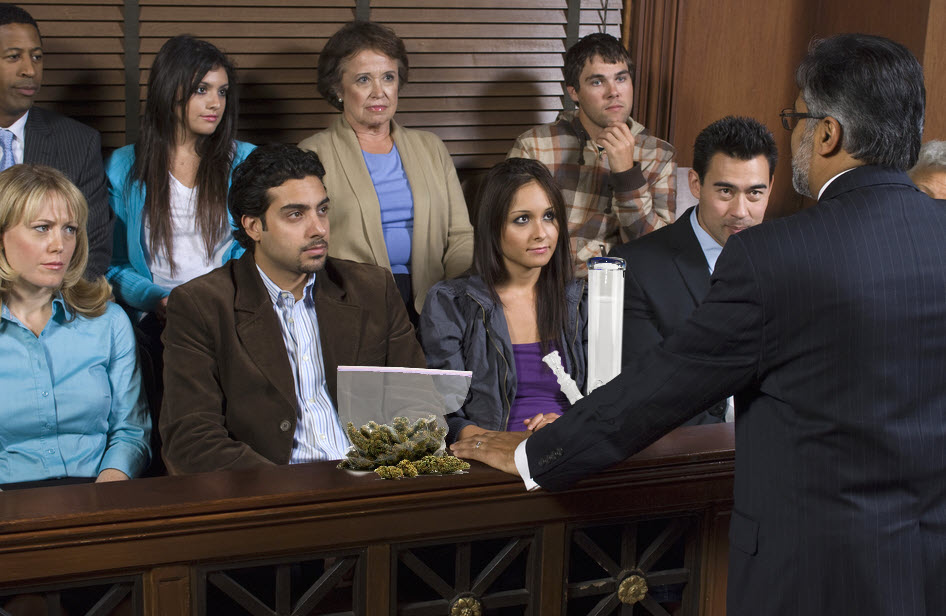
Cannabis Cases Can All Be Dismissed by a Jury, If the Jury Agrees on a Cannabis Nullification Decision
For centuries, jury nullification has been a way of protecting and defending the people from unjust laws. In an attempt to keep power away from an...cannabis.net
Cannabis Cases Can All Be Dismissed by a Jury, If the Jury Agrees on a Cannabis Nullification Decision
How cannabis legalization is impacting jury nullification
Posted by:
BehindTheWaves on Monday Jul 11, 2022

The Impact of Cannabis Legalization on Jury Nullification
For centuries, jury nullification has been a way of protecting and defending the people from unjust laws. In an attempt to keep power away from an oppressive government and the people, jury nullification enables citizens (particularly a jury) to veto a guilty verdict even while evidence suggests otherwise.
Jury nullification began in the 17th century as a charge for freedom of religion and, since then, has bestowed onto American citizens the power to dismiss laws they feel are oppressive. Jury nullification has facilitated drastic changes in American society. It helped to end the Salem Witch Trials, ended alcohol prohibition, limited capital punishment, helped protect individuals helping enslaved people escape, and gave way for union rights.
Invalidating Cannabis Charges in Court
Even though many people disagree with cannabis laws in their states, many are foreign to the power they possess to rectify them.
Many jurors are ignorant of the ability to invalidate a case because judges are not compelled to provide any information about it (in many situations, they instruct the jury to focus on ruling based on the facts of the case rather than the justice of the law). Unfortunately, this gives the impression that citizens have no control over the laws, while in reality, they do.
Famous examples of Jury Nullifications in Cannabis Cases
In the early 2000s, Ed Rosenthal, a horticulturist, author, and columnist at the High Times, was caught cultivating cannabis in Oregon. Three federal felonies connected to marijuana growing and distribution were found to be committed by Ed Rosenthal. The jury acquitted Rosenthal on the counts involving the Harm Reduction Center, a medicinal marijuana dispensary in San Francisco. It reached a stalemate on the conspiracy allegation, which the prosecution later dropped.
Some jurors changed their minds after learning about the nullification option and the fact that the city of Oakland had sanctioned him to grow the substance; as a result, the 9th Circuit Appeals Court overturned the conviction. The foundation of this conviction can be attributed to jury selection. The majority of the jurors had prerequisite knowledge of medical marijuana. Once they discovered the court had intentionally failed to mention any reference to medical marijuana, not to mention the judge's insistence on refusing a defense attorney the permission to defend medical cannabis.
Another famous case where the jury successfully nullified cannabis charges occurred in 2012. Doug Darell, 59-year-old New Hampshire Rastafarian, was arrested for cultivating cannabis for religious and therapeutic purposes on a plot behind his home.
The Laconia Daily Sun reported that the jurors at Darrell's trial were fully aware of their ability to overturn the verdict. Judge James O'Neill had read the explained the nullification law to the jury at the advice of defense attorney Mark Sisti. He stressed that even if the jury finds that the State has established every element of the crime charged beyond a reasonable doubt, they could still rule the defendant not guilty if you have a conscious belief that a not guilty judgment would be fair.
Thanks to this, the jury, headed by Free State Project's Cathleen Converse, the well-versed jury, chose to judge the defendant not guilty.
Balancing the scale
One important way the people of America preserve their freedom is the jury's power to throw out a judicial decision. But many people are unaware of how strong the American people are because it is rarely (or never) acknowledged. In order to strengthen just laws and repeal unfair ones, it is crucial to regain that power. It is more or less as though the judicial system homes all the power in this struggle for cannabis legalization and equality in all areas. The power of jury nullification helps the masses take back some of the power as well as balance the scale.
Jury nullifications date back to our founding fathers, who put protections in place to safeguard us from a government as oppressive as the one they had fled. This extends much beyond our right to keep and bear arms, which encompasses the freedom of speech and the right to demonstrate (albeit medical marijuana cardholders are not included in this discussion). In fact, we hold the power; nevertheless, it is up to us to know what that power entails and what we can use it to achieve.
Promoting Jury Nullifications
Do you know you can help spread the word on jury nullification? You can also do more to petition for changes in unjust cannabis laws at the federal level and in some states that are yet to adopt cannabis decriminalization.
A few tips you need to make a difference include:
–Get to know all you can about all aspects of the cannabis sector, including laws, politics, and health. This would assist you in determining where you really stand. Note that there is a lot of conflicting information out there, so it can be difficult to understand what is and is not accurate.
–Ensure you check all information against reliable sources to make sure you can tell facts from fiction. Understanding the rationale behind the source's position is important because many "trusted" people can still hold outdated opinions about cannabis, especially if doing so improves their bank accounts.
–Consider being involved in a cannabis community to discuss what you've learned. Also, discuss what you've learnt with your coworkers, family, and friends. Even if a stranger is keen on learning, put them through.
The best way to ensure jurors know about the right to annul or nullify cannabis-related cases is for everyone to spread the word.
Bottom Line
Have you considered becoming a juror yourself? If you're legally qualified to be one, then do it. Although you may not be delegating on cannabis cases, it puts you in proximity with those who would. You'd have a solid opportunity to see how the justice system works firsthand and be a part of it. If you're fortunate enough to be on a cannabis case, you can tell other jurors about nullification, leading to reform in your locality and state.
If jury qualifications become a trend in the United States, the federal government may have no choice but to satisfy the wishes of the masses by legalizing cannabis nationwide.
fija.org is one website worth checking out for juror nullification info.
Also, while people commonly refer to it as "jury nullification", it can work quite well as "juror nullification". One single juror who has a conscience can hold out and create at a minimum a mistrial.




